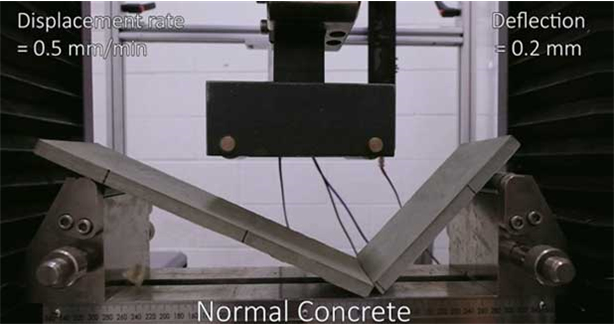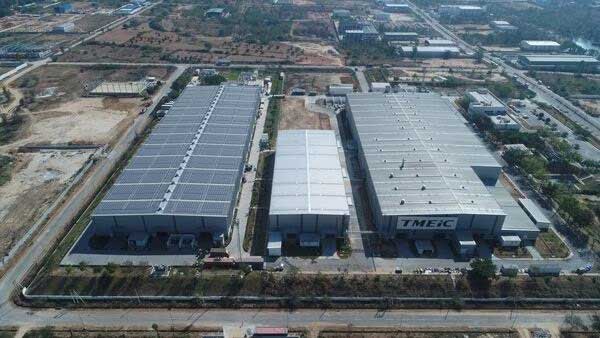14th RAHSTA (Roads and Highways Sustainable Technologies & Advancement) Expo – India’s biggest road exhibition – will be held as a part 10th India Construction Festival 2024 at Jio Convention Centre, Mumbai, from October 9-10, 2024.
April 10, 2024, Delhi
“We believe RAHSTA is the ideal platform for our presence, and we are confident in our participation in the upcoming expo scheduled for October,” said Anand Sundaresan, Director, Ammann India, while speaking during the launch of a road show – 14th RAHSTA Expo, which will be held from October 9-10, 2024, at Jio Convention Centre, Mumbai. RAHSTA, which stands for Roads and Highways Sustainable Technologies & Advancement, is a dedicated event to the world of road construction equipment, technology, and sustainability.
Sundaresan added, “We predominantly specialise in road construction machinery, such as asphalt plants, concrete batching plants, pavers, and rollers, among others. Additionally, we offer ancillary equipment like supers. With the government placing significant emphasis on infrastructure development, there is a substantial demand for road construction machinery. Particularly noteworthy is the growth witnessed in the last year (2023-2024), with a surge in orders. Moreover, the construction of airports is underway, necessitating equipment for runway construction. We perceive immense potential and opportunity for growth within the industry.”
“The Ministry of Road Transport & Highways has constructed 12,349 km of national highways in 2023-24 – the second highest achievement! In 2020-21 a record 13,327 kms had been constructed, the highest so far. The experience of a well-constructed road is no accident but a badly constructed one can cause many,” stated Pratap Padode, Founder, FIRST Construction Council, a pioneering infrastructure-driven council focused on advancing India’s infrastructure development.
Padode was speaking at the launch of a road show – 14th RAHSTA Expo, which will be held from October 9-10, 2024, at Jio Convention Centre, Mumbai. RAHSTA, which stands for Roads and Highways Sustainable Technologies & Advancement, is a dedicated event to the world of road construction equipment, technology, and sustainability.
Speaking at the launch, former Managing Director of Ashok Leyland & JCB, Vipin Sondhi, also Chairman of RAHSTA Expo Committee underscored the need for specialised platforms like RAHSTA Expo for the burgeoning road construction industry.
Ashish Kumar Singh, CGM – Finance, National Highway Authority of India; RK Pandey, former NHAI member and Member of RAHSTA Expo Committee; SK Nirmal, Secretary General, Indian Roads Congress and Member of RAHSTA Expo Committee; Prof Satish Pandey, Principal Scientist, CSIR-Central Road Research Institute, Ministry of Science and Technology; Ankit Jain, CFO, Cube Highways Growth Advisors, Vijay Agrawal, Executive Director, Equirus Capital; and Subodh Dixit, Former Executive Director, Shapoorji Pallonji, participated in a round table discussion on the new BOT proposals.
The launch function at PHD Chamber for RAHSTA Expo was attended by who’s who of the infrastructure industry such Lt Gen Harpal Singh, President, International Road Federation and former Engineer-in-Chief, Indian Army; Akhilesh Srivastava, Road Safety Ambassador, International Road Federation; Sandeep Singh, Managing Director, Tata Hitachi Construction Machinery; Rajesh Menon, Director General, Society of Indian Automobile Manufacturers; Raman Kapil, President, Tata Projects; Anand Sundaresan, Director, Ammann India; Dheeraj Panda, Managing Director, Ammann India; Rajan Aiyer, Managing Director, Trimble; Satin Sachdeva, Founder & Secretary General, Construction Equipment Rental Association; Dr Swamy, Chairman, The Institution of Civil Engineers and Dr Ranjeet Mehta, Executive Director of PHDCCI, among others.
Organised by the FIRST Construction Council, the RAHSTA Expo 2024, which will be held as part of 10th India Construction Festival, will bring together industry leaders, innovators, and stakeholders for two days of exploration, collaboration, and transformation.
Besides RAHSTA Expo 2024, the India Construction Festival 2024 will include the following:
Exhibitors can use RAHSTA Expo 2024 to showcase their construction machinery, building material machines, mining machines, and construction vehicles to a targeted audience of industry professionals. RAHSTA Expo will be an ideal platform to connect with key decision-makers, generate leads, and grow business in this rapidly expanding market.
Contact:
For exhibitor enquiries (for RAHSTA Expo), contact Mr Sujoy on Mob: +91 86577 95881, or Email: sujoy.g@asappinfoglobal.com
For delegate enquiries (for conferences), contact Mr Amar on Mob: +91 86524 93000, or Email: delegate1@asappinfoglobal.com


 Economy & Market2 weeks ago
Economy & Market2 weeks ago
 Concrete1 week ago
Concrete1 week ago
 Economy & Market2 weeks ago
Economy & Market2 weeks ago
 Economy & Market2 weeks ago
Economy & Market2 weeks ago





















